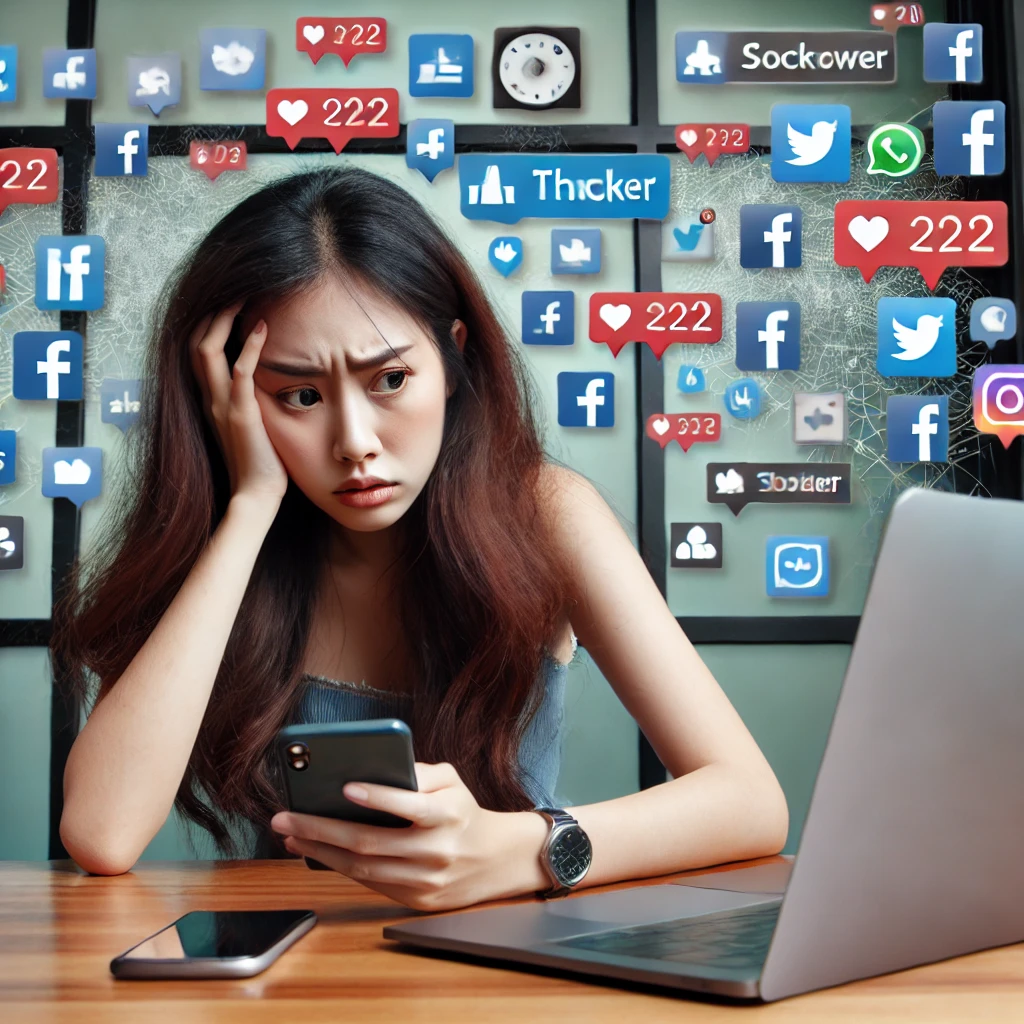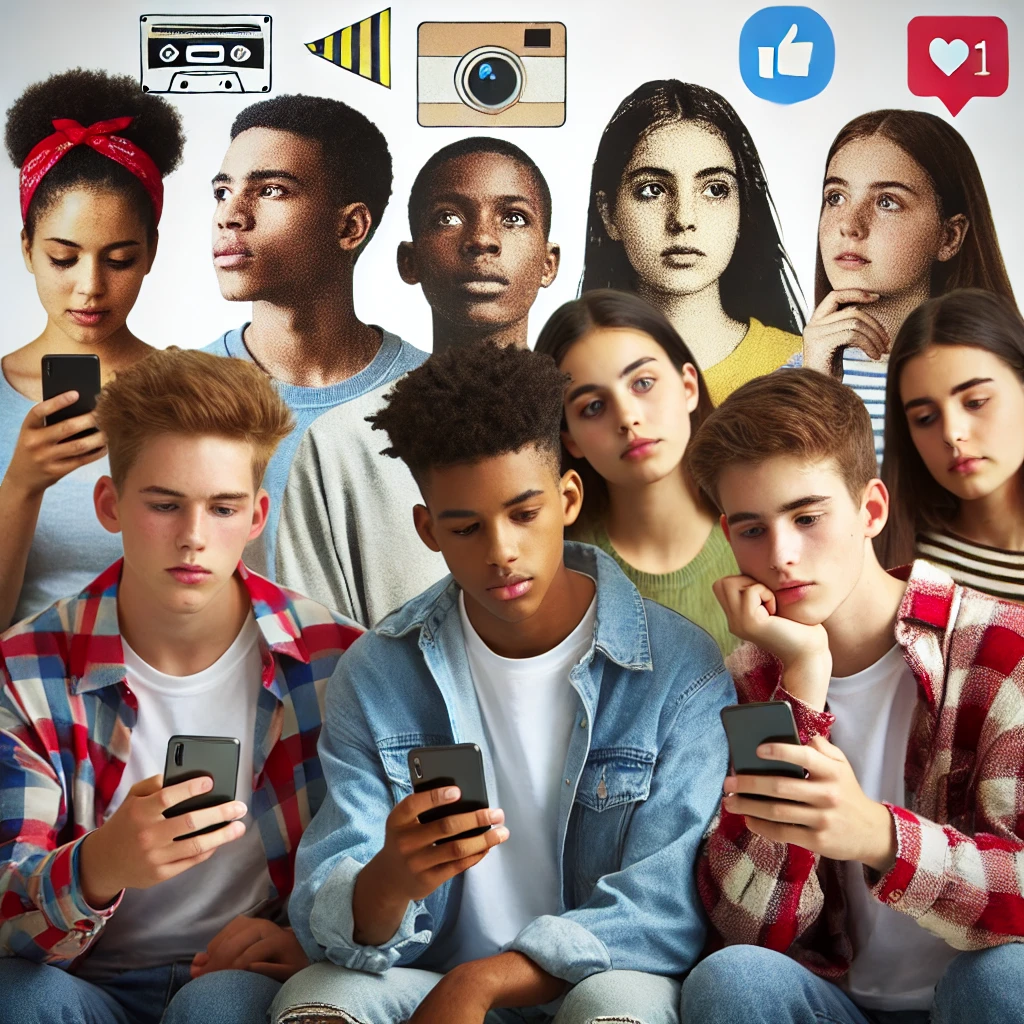Social media influencers often present a picture-perfect life, but beneath the filters lies a much darker reality. From mental health struggles to ethical dilemmas, the true cost of influencer fame is a stark contrast to the glossy images we see online. In this blog post, we’ll delve into the hidden truths of influencer culture—exploring the pressures faced by influencers, the illusion of authenticity, the ethics of endorsements, the impact on young audiences, and meaningful alternatives, including insights from digital marketing experts at DESS.

Mental Health Struggles
Influencers constantly strive to maintain an ideal image, often leading to significant mental health challenges. The relentless pressure to appear flawless can result in anxiety, depression, and even eating disorders. A study by the Royal Society for Public Health found that Instagram is the worst social media platform for mental health, with many users reporting feelings of inadequacy and anxiety.
The need to consistently produce engaging content and the fear of losing followers can create a toxic cycle of stress and burnout. At DESS, we advise content creators to prioritise their well-being and adopt sustainable posting strategies, rather than chase engagement at the cost of mental health.
The Illusion of Authenticity
What appears spontaneous and real online is often anything but. Influencer content is usually planned, posed, and polished. Behind the “authentic” selfies are curated aesthetics and hours of editing. This disconnect between online personas and real life sets an impossible standard.
At DESS, we help brands and influencers find a balance—creating content that resonates, without sacrificing transparency or integrity. Real stories connect better than picture-perfect illusions.
The Ethics of Endorsements
Many influencers promote products they neither use nor believe in, driven more by paycheck than purpose. This raises questions about responsibility and consumer trust. The Federal Trade Commission (FTC) continues to urge influencers to disclose paid partnerships clearly and honestly.
DESS supports ethical marketing by working only with influencers who align with a brand’s vision and values. Whether it's a beauty brand or a wellness retreat, our campaigns focus on meaningful endorsements and honest storytelling.
The Impact on Young Audiences
Teenagers and young adults are especially vulnerable to influencer messaging. Idealised body images and luxury lifestyles can harm self-esteem and create a skewed sense of reality.
Research by the University of South Australia shows a direct link between influencer content and adolescent body dissatisfaction. At DESS, we advocate for conscious content creation—especially when marketing to youth—and help brands build responsible campaigns that promote confidence, health, and self-worth.

Alternatives to Influencer Marketing
With growing awareness about the downsides of influencer culture, brands are exploring more ethical and authentic marketing avenues. Community-driven creators, micro-influencers, and purpose-led content are gaining momentum.
Brands like Patagonia and Lush are great examples of marketing rooted in values. Similarly, at DESS, we work with brands that champion sustainability, inclusivity, and transparency—helping them connect with audiences in honest and impactful ways.
Conclusion
The dark side of influencer culture reveals critical issues: mental health struggles, ethical grey zones, and unrealistic standards that affect young minds. By unmasking these hidden costs, we can begin to reshape the digital landscape.
At DESS, we believe in authenticity over aesthetics and purpose over popularity. Whether you're a creator or a business, let’s build a healthier, more transparent social media ecosystem—one that inspires rather than deceives.
References:
-
Royal Society for Public Health. (2017). #StatusOfMind: Social media and young people's mental health and wellbeing
-
CNBC. (2021). Influencers reveal the reality behind their 'perfect' Instagram photos
-
Federal Trade Commission. (2019). Disclosures 101 for Social Media Influencers
-
University of South Australia. (2020). Social media influencers impact adolescents' health behaviours
-
Patagonia. (2021). Our Footprint
Comments on “Influencers: The Hidden Costs of Social Media Stardom”